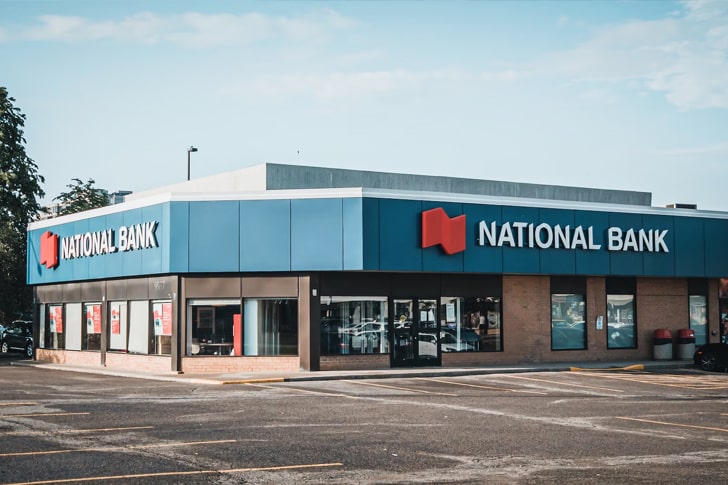Savings accounts are deposit accounts created to hold your money for safekeeping and earn you some interest. This interest will vary depending on the banking brunch you settle with. You should consider saving up once you notice a surplus from your income versus your expenses. While considering an account to choose from, you should consider a couple of factors.
These factors include ease of use, accessibility, and interests that you'll bear at the end. This way, your money starts working for you. As the day passes, more savings accounts are being created. It can be quite a struggle to understand which account to settle for. Luckily, we understand this pressure and have prepared a detailed, in-depth look at some of these accounts. Here are the top six options to look at in your search for the right savings account to use today.
1. Traditional Savings Accounts

PiggyBank / Unsplash
Traditional savings accounts are a great way for a beginner to get started. Their interest rates are modest and perfect if you want a low-risk savings plan with access to funds. Most witty banking clients often open savings and checking accounts at the same bank. This ensures convenience and maximum utilization of favorable features. Here are some of the pros and cons that come with opening a traditional or standard savings account.
Pros
- These accounts usually allow regular withdrawals, making money easily accessible.
- The accounts are insured by The Federal Deposit Insurance Corporation (FDIC) up to $250,000 in case of a bank failure.
Cons
- Monthly maintenance fees
- Lower interest, as banks or credit unions usually offer around 0.01% rates.
2. Certificates of Deposit (CDs)

RDNE Stock project / Pexels
Certificates of deposit (CDs) are another type of savings account that offers interest on a specific amount of money for a fixed duration. The interest rates for these types of accounts are usually very competitive compared to traditional ones. One of the major features that differs from traditional savings accounts is the duration of time needed to make withdrawals. For instance, CDs offer a set period of six months, a year or more before you withdraw.
However, you are not restricted from withdrawing, but you have to pay a penalty if you withdraw before the designated time expires. Further, the interest rates of CDs are usually fixed. Unlike traditional accounts, interest rates may vary depending on the market. You can open a CD account through traditional banks, credit unions, or online banks.
Pros
- Due to the greater interest rates these accounts offer compared to typical savings accounts, your money will earn more interest.
- Interest rates are locked in for a predetermined time since they are fixed.
- No monthly fees are attached to them.
- The Federal Deposit Insurance Corporation (FDIC) offers up to $250,000 in insurance.
- There are several term possibilities, ranging from months to years.
Cons
- Your money is locked up for a predetermined time, depending on your selected term.
- There are penalties if you take money out before your term is up.
3. High-yield savings accounts

freepik / freepik
Just like the name suggests, a high-yield savings account is a savings account that offers an Annual Percentage Yield (APY) that’s higher than the traditional savings account.
In an attempt to lower inflation, the Federal Reserve has raised rates several times, leading to this type of savings account growing in popularity. This is because when the Fed raises interest rates, the APY on your savings account automatically increases.
You can find these high-yield savings accounts in both credit unions and online banks. One thing worth noting is that this type of account might not favor you if you regularly need to withdraw cash.
Pros
- Interest rates are greater than in regular savings accounts, meaning that your money will earn more interest. These accounts occasionally provide rates higher than 3%.
- Because internet banks offer these accounts, you are less likely to be charged a monthly fee.
- The Federal Deposit Insurance Corporation (FDIC) offers up to $250,000 in insurance.
Cons
- Transactions are exclusively completed online and may take several days because there isn't a physical branch.
- Federal regulations limit the number of withdrawals that can be made; normally, six monthly withdrawals are permitted without incurring costs.
4. Money Market Accounts

freepik / freepik
Another type of savings account making it on the list is the Money Market Account (MMA). These are a type of deposit account paying variable interests on your balance. As the name of the interest states, it usually changes over time.
You can find MMAs in traditional banks, credit unions, and online banks. These types of accounts are also referred to as “hybrid accounts.” This is because they usually come with checkbooks and debit cards and give room for regular withdrawals.
Pros
- Compared to conventional savings accounts, the interest rates on your money are higher.
- With these accounts, you may readily access your money and frequently receive a debit card or checkbook.
- The Federal Deposit Insurance Corporation (FDIC) offers up to $250,000 in insurance.
Cons
- Certain banks impose monthly fees determined by the balance, exceeding the withdrawal limit, or basic upkeep.
5. Cash Management Accounts

rawpixel.com / freepik
A cash management account is another option to consider in your saving and investment journey. These are non-bank accounts managed online. Their interest rates are very competitive as compared to standard savings accounts.
They stand out because they are not designed for saving alone but also for investing. Online banking platforms and online brokerages offer cash management accounts. They typically have a lower interest when compared to high-yield savings accounts.
We cannot say the same when compared with a standard savings account since these accounts have predominantly higher rates.
Pros
- Interest is paid to you on funds that you intend to invest.
- Both checking and savings account-related options are available to you.
Cons
- Interest rates on cash management accounts are often lower, so you could earn more money with high-yield savings accounts.
- Not all of these accounts are covered by the FDIC.
6. Specialty Savings Accounts

jcomp / freepik
If you are looking for a more goal-oriented savings account, this should be your number one option. Specialty savings accounts are accounts geared towards a specific goal. These goals could include saving up a down payment for a house, college funds, or even retirement funds.
Specialists say that having an account geared towards a specific goal helps create a positive mindset. This is mostly due to the knowledge of money increasing being a step closer to achieving your goal.
Pros
- You are saving for a specific objective rather than putting your money into one account.
- Most of these accounts are covered by FDIC insurance.
Cons
- Similar to regular savings accounts, certain specialist accounts have withdrawal limitations.
- Interest rates differ depending on the type of account.
How to Open a Savings Account
It's easy to open a savings account. Ensuring you locate the ideal account for your needs should come first. The following advice can help you choose the perfect savings account:
- Consider your savings objectives: For instance, you could like to accumulate money for a trip or an emergency fund. Identifying your purpose can assist you in selecting the ideal savings account.
- Look around, not just at large banks: Unlike massive retail institutions, online banks, credit unions, and community banks typically provide more competitive interest rates. Consider transaction costs, minimum balance restrictions, and monthly maintenance fees.
- Verify that the account is protected: Verify if the NCUA protects the account for credit unions or the FDIC for banks.
Opening a savings account varies depending on your bank or credit union. In any case, a driver's license or state ID, your Social Security number, address, date of birth, and other personal information are often required to establish an account.
The Bottom Line
Regardless of the savings account type you select, it's smart to start saving for emergencies or long-term objectives like a down payment on a home or a rainy day when you least need it. You can also earn interest and prevent spending. It can seem daunting but don't hesitate to seek assistance or call someone to figure out where you are right now and how to get there.
Here at Online Finance, we help you be empowered to look around for some of the best savings accounts in the market. So start with us today for free.
Find here the best online saving accounts for 2024
Frequently Asked Questions (FAQs)
How much interest does a savings account earn?
The bank's annual percentage yield (APY), your balance, and the frequency of interest compounding all affect how much interest you get on your savings account. You can get more interest on a savings account if the APY is greater and interest compounded more regularly.
Are online savings accounts safe?
Traditional banks' savings accounts are no less secure than those found online. Your deposits are safe as long as the savings account provider is insured. Seek out credit unions guaranteed by the NCUA and banks insured by the FDIC, both conventional brick-and-mortar and online. Savings accounts are covered by up to $250,000 per owner type, each insured bank or credit union, and per depositor.
The main advantage of an online bank is that, compared to physical banks, they usually have considerably reduced overhead expenses, which allows them to provide better returns with less fees.
How do you calculate interest earned on a savings account?
The simplest method to determine how much interest you've made on a savings account is to look at your monthly bank statement. Based on your APY, balance, and compounding frequency, your bank should have specified the interest you earned for that particular month. You may also use an online savings account calculator to estimate interest earnings.






